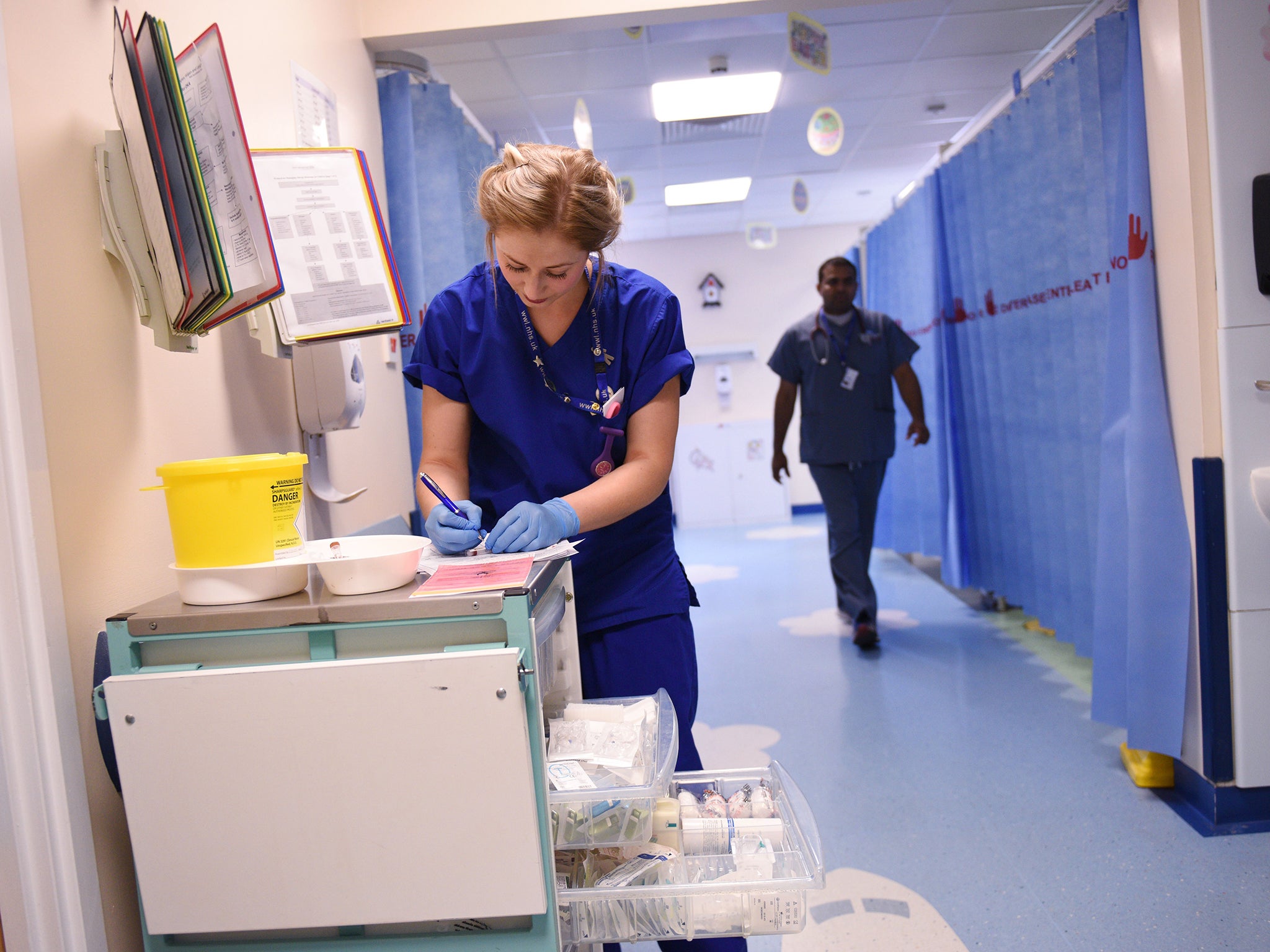NHS 'staring into the abyss' as two thirds of trusts report deficits
'The path they are on now leads only to a complete financial collapse by 2020 – the NHS in England alone faces a gobsmacking black hole of £56 billion over the next five years'

Your support helps us to tell the story
From reproductive rights to climate change to Big Tech, The Independent is on the ground when the story is developing. Whether it's investigating the financials of Elon Musk's pro-Trump PAC or producing our latest documentary, 'The A Word', which shines a light on the American women fighting for reproductive rights, we know how important it is to parse out the facts from the messaging.
At such a critical moment in US history, we need reporters on the ground. Your donation allows us to keep sending journalists to speak to both sides of the story.
The Independent is trusted by Americans across the entire political spectrum. And unlike many other quality news outlets, we choose not to lock Americans out of our reporting and analysis with paywalls. We believe quality journalism should be available to everyone, paid for by those who can afford it.
Your support makes all the difference.Financial problems facing the NHS have been branded “endemic” as two-thirds of trusts report deficits, according to a new report by the National Audit Office.
The report, outlining the perilous state of Britain’s health service, finds that in 2015-16, NHS commissioners, trusts and foundation trusts recorded a combined deficit of £1.85 billion – a significant increase on the £574 million reported in the previous year.
In their fifth report into the financial stability of the NHS the National Audit office – an independent parliamentary body – finds that the financial position of NHS bodies overall has continued to decline.
It adds provider trusts’ overall deficit grew by 185 per cent to £2.45 billion, up from £859 million on the previous year.
Amyas Morse, head of the National Audit Office, said: “With more than two-thirds of trusts in deficit in 2015-16 and an increasing number of clinical commissioning groups unable to keep their spending within budget, we repeat our view that financial problems are endemic and this is not sustainable.
“It is fair to say aggressive efficiency targets have helped to swell the ranks of trusts in deficit over the last few years.”
“The Department, NHS England and NHS Improvement have put considerable effort and funding toward stabilising the system, but have a way to go to demonstrate that they have balanced resources and achieved stability as a result of this effort. Therefore, value for money from these collective actions has not yet been demonstrated.”
Frank Field, a Labour MP and chair of the work and pensions select committee in Westminster, said the report was evidence that “Britain’s health and social care services are staring into the abyss”.
He added: “The path they are on now leads only to a complete financial collapse by 2020 – the NHS in England alone faces a gobsmacking black hole of £56 billion over the next five years. An immediate penny increase in National Insurance contributions – a move which goes with the grain of voters’ wishes – would see the NHS through this five-year period of intensive care.
“A root and branch reform of the contributory base, involving a new, hypothecated, progressive National Insurance system, is then required to see health and social care through the next generation.”
Commenting on the report Norman Lamb, a former Lib Dem health minister, said: “The report is a nail in the coffin for the Government’s claims to be adequately funding the NHS.
Mr Lamb said “fresh thinking” is needed if the country is to avert a “total catastrophe”. He added: “The National Audit Office seems to have no confidence whatsoever that the NHS can make heroic savings the Government is relying on.”
Meg Hillier, chair of the influential public accounts committee, said the Department of Health and NHS England were making “pie in the sky” assumptions to maintain they can still close the gap forecast in funding by the end of the decade.
A Department of Health spokesperson said: “We know finances are challenging for some parts of the NHS, which is why we have a strong plan to get back on track. We are already seeing progress, with 40 fewer trusts in deficit compared to this time last year.
“We are also investing an extra £4 billion in the NHS this year to transform services and improve standards of care, which will rise to an extra £10 billion per year by 2020/21.”
Join our commenting forum
Join thought-provoking conversations, follow other Independent readers and see their replies
Comments